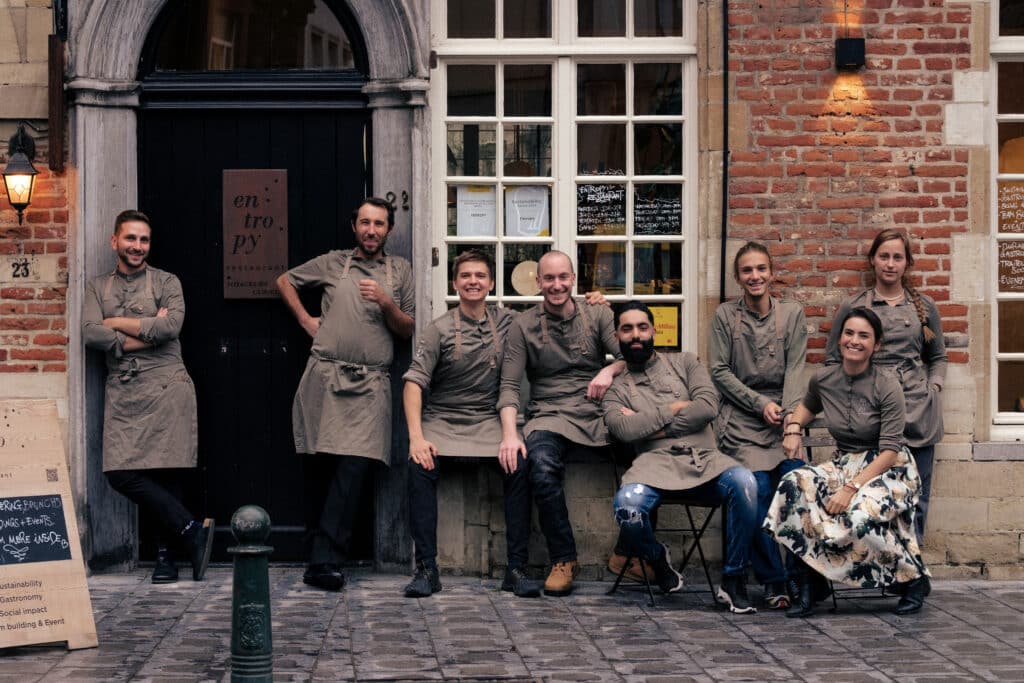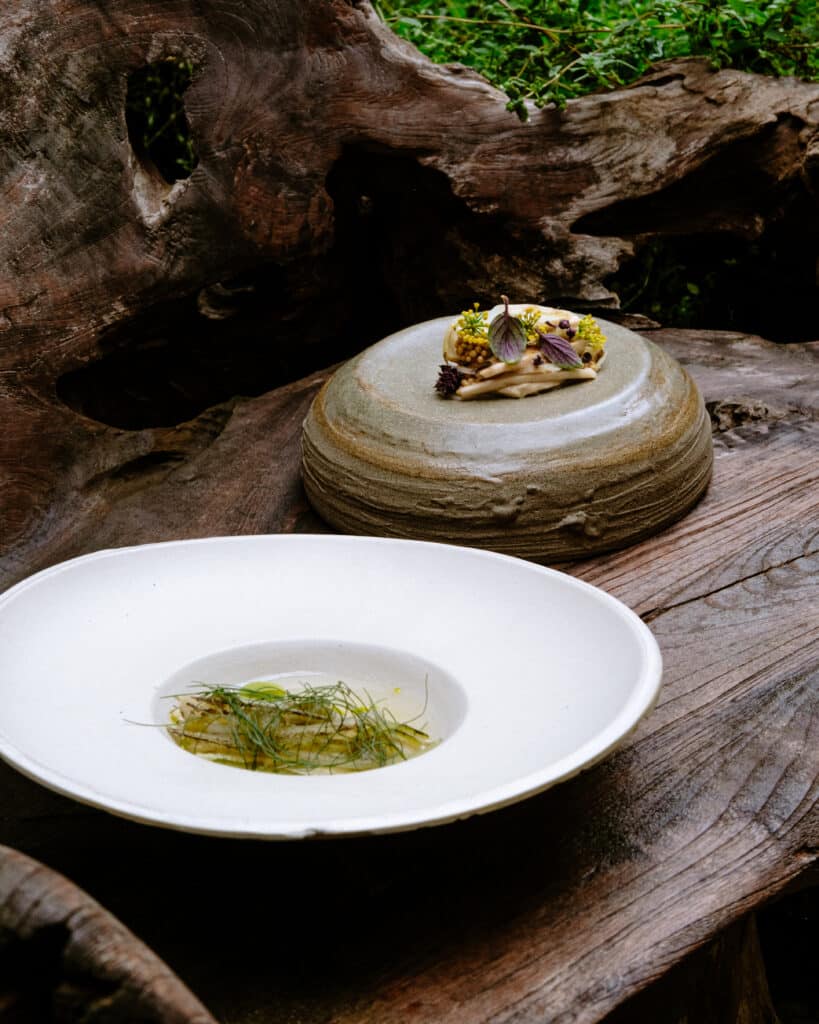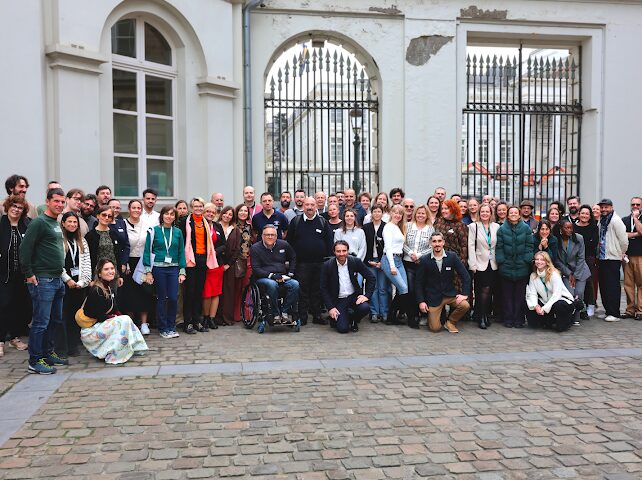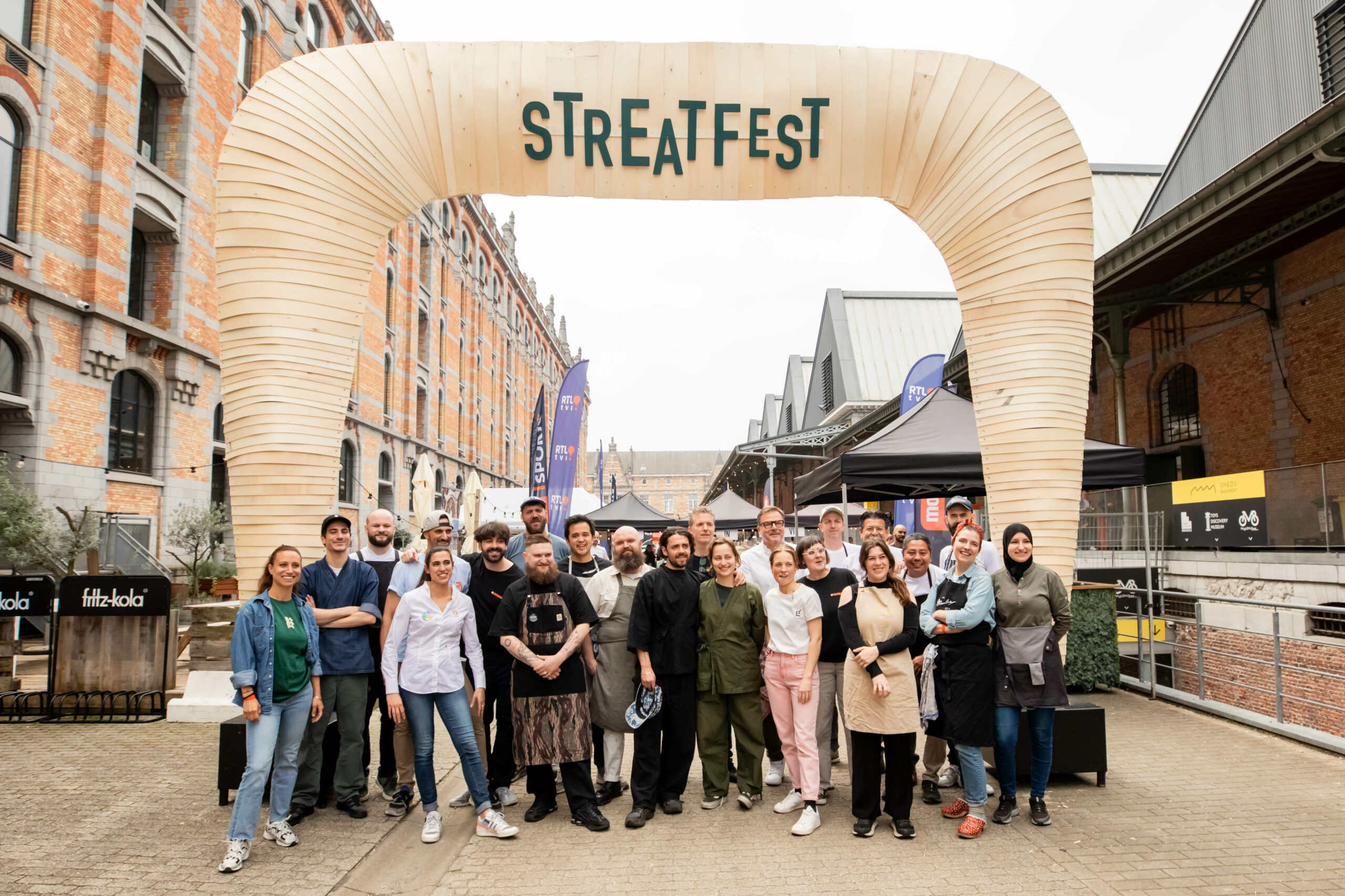Discovery of the year and award for culinary innovation around sustainability, the Brussels-based Entropy restaurant gave Gault et Millau inspectors a run for their money in 2023. The prize was awarded for the uncompromising commitment of chef Elliot Van de Velde and his partner Adeline Barras to high-level gastronomy with low environmental impact. Yet this restaurant is only the enlightened part of a much larger movement, the Hearth Project, a polymorphous non-profit organization fighting against the food and social aberrations of our times.
Entropy, the conscious restaurant
Entropy, housed in a plush 18th-century building on the Saint Gery islet, is the leader of the new wave of sustainable restaurants in Brussels. Far from being simply a trendy marketing positioning, circularity, upcycling and zero waste are here “real guarantees of quality“. As proof, Entropy has been packed since it opened, with gourmets flocking to this culinary experience and its entirely plant-based menu. On the plate, products are worked to 360°, in season it goes without saying, and sourced from the most uncompromising local market gardeners in terms of organic production. With the exception of citrus fruits and spices, “all suppliers are located within 30 km of the restaurant”. This hyper-local approach fits in perfectly with a zero-waste policy taken to the extreme because, yes, for those who still doubt it, a gourmet restaurant can be an ideological battleground.
From gastronomy to social action
Few people know that alongside the restaurant, in the same kitchens and with the same team, nearly 500 social meals are produced every week and all year round on behalf of the Hearth Project. This non-profit organization, which has been working to help the most disadvantaged since 2019, has made “the exploitation of unsold food its core activity“. Overproduction, unsightliness or mislabeling – there are many reasons why tons of food remain unsold. Recovered “from the restaurant’s direct suppliers or via Horeca centers“, the products are cooked into meals, “with a twist of elegance“, and distributed to a number of social associations. Whether students, the homeless or single-parent families, meals are adapted to the beneficiaries according to their needs or religion, “after 10 years on the streets, for example, teeth are generally in poor condition and food intolerances more numerous“. In short, our commitment to customer satisfaction is the same whether you’re sitting at a table at Entropy or in line at a solidarity food-truck on a university campus.
“Finding the right partners at the start of the project saved us an enormous amount of time”.
High-impact actions
Business plan, search for partners, financing and even premises, the Hearth Project was able to exploit the resources made available to entrepreneurs by hub.brussels. A solid partnership that now allows the ambition to change scale, to envisage “even more impact”. How can we do this? By training social associations to process unsold food themselves, by intervening in culinary schools or by “relentlessly informing political and economic decision-makers, to encourage them to take action against the contemporary heresy of waste“. It is estimated that 40% of the food produced in the world is never consumed, while at the same time the figures for deprivation break record after record. In Brussels, it is estimated that over 32,000 people are dependent on food aid. There is such a “lack of awareness of the products and deviances of our food chains” that the challenges are still immense. However, Elliot and Adeline are convinced that fairer solutions do exist, and that “they are right in front of our eyes”.





